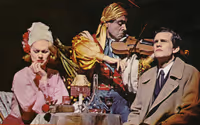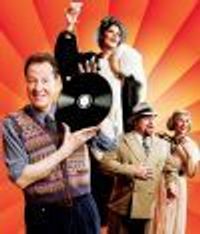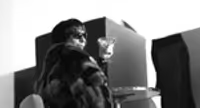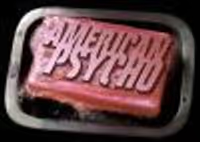Credible Sources for a Pro Bootleg Essay?
#1Credible Sources for a Pro Bootleg Essay?
Posted: 12/5/15 at 3:28pm
I would like to write an essay on the topic of the preservation of live theatre and how bootlegs are one of the only ways that shows are preserved. I need to use at least 4 scholarly sources (preferably academic journals or articles), but I have no idea where to start looking. The resources I have offered through my high school, offered zilch. Any help would be wonderful! Thanks!
#2Credible Sources for a Pro Bootleg Essay?
Posted: 12/5/15 at 3:46pm
You mean to tell us that your high school doesn't offer any credible scholarly essays that are pro bootleg videos??? You must go to a crappy public school.
#3Credible Sources for a Pro Bootleg Essay?
Posted: 12/5/15 at 3:48pm
I know it's a really specific topic, and I knew my resources probably wouldn't offer much help. That's why I asked on here.
#4Credible Sources for a Pro Bootleg Essay?
Posted: 12/5/15 at 3:55pm
I would advise against doing this topic at all, because I seriously doubt that you'll be able to find good sources to back up your claim without badly stretching and forcing your argument. (And you're pretty much trying to condone an illegal practice with this essay, which depending on your teacher might not sit well.)
VintageSnarker
Broadway Legend Joined: 1/30/15
#5Credible Sources for a Pro Bootleg Essay?
Posted: 12/5/15 at 4:07pm
Agreeing with everyone else... it's unlikely you'll find something pro-bootleg. But depending on the requirements of the assignment, maybe you can modify your thesis. You might be able to find sources that are pro-recording live theatre. I don't know how credible it is but you might be able to find something on Ken Davenport's blog. And maybe try using the NYPL or Live From Lincoln Center or some variation of those as keywords in your searches. If you're really pressed, maybe try expanding to movie musicals. You have to think about searching for an argument someone would have made.
FindingNamo
Broadway Legend Joined: 7/22/03
#6Credible Sources for a Pro Bootleg Essay?
Posted: 12/5/15 at 4:13pm
It would be PERFECT if you plagiarize the sources!
#7Credible Sources for a Pro Bootleg Essay?
Posted: 12/5/15 at 4:17pm
Even those in the industry that don't mind bootlegs are probably unlikely to make those opinions known.
Sounds like more of an op ed piece or a documentary than a scholarly research paper.
Pootie2
Broadway Legend Joined: 8/1/14
#8Credible Sources for a Pro Bootleg Essay?
Posted: 12/5/15 at 4:40pm
gleek4114 said: "I would like to write an essay on the topic of the preservation of live theatre and how bootlegs are one of the only ways that shows are preserved. I need to use at least 4 scholarly sources (preferably academic journals or articles), but I have no idea where to start looking. The resources I have offered through my high school, offered zilch. Any help would be wonderful! Thanks!"
Broadway is already preserved on video, so remove all those shows from the argument. I suppose your "one of" list otherwise only includes cast recordings. As for finding scholarly articles promoting illegal theft of intellectual property, however it's defined by various country's laws, good luck. You'll certainly fail in this "scholarly" topic when considering only the perspective of a pining fan; the legal and economic underpinnings for this subject are quite vast.
You're better off trying to argue why the economic concerns of art creators don't matter and/or why intellectual property laws should be repealed. I would start there. Surely there are peer-reviewed papers for those items.
#9Credible Sources for a Pro Bootleg Essay?
Posted: 12/5/15 at 4:52pm
Perhaps you could argue for the case for all musicals [and plays] that could be available for sale after the production has closed or the casting has changed, perhaps a limited printing. Unfortunately that would not come cheep as everybody associated with the show should be given some payment, this would be more than cast recordings as the set/scenic, costume, lighting, etc designers would be included which I believe is not the case with audio recordings.
#10Credible Sources for a Pro Bootleg Essay?
Posted: 12/5/15 at 4:53pm
FindingNamo said: "It would be PERFECT if you plagiarize the sources!
"
Lol! ![]()
#11Credible Sources for a Pro Bootleg Essay?
Posted: 12/5/15 at 4:56pm
Jen Tepper, theatre historian, is an amazing source. If there's no due date, you could email her and get an interview. If you're doing this for class, she's spoken many times about it, including an episode of the Patty & Emily podcast, "Listen", here: http://pattyandemily.com/2015/10/interview-jennifer-ashley-tepper-and-kevin-michael-murphy/
UPDATE: Sorry, forgot to say that Tepper is pro-Bootleg and that's why I recommended her. She has a very practical look on it, because a lot of shows would have been virtually erased from history without the bootlegs.
#12Credible Sources for a Pro Bootleg Essay?
Posted: 12/5/15 at 5:00pm
Thank you all for the input. I will definitely try to tweak my thesis. The point of the essay was never to condone the illegal filming of broadway shows, but to explain why it is, and has been necessary for the preservation of theatre throughout the years. It seemed like an interesting topic that I know hasn't been heavily discussed, which is what got me interested in the idea. I might try to shift it to focus on the importance of preserving theatre so bootlegs will no longer be a necessity to preservation. Thanks again for the help! If anyone has anything else to help feel free to post it here!
#13Credible Sources for a Pro Bootleg Essay?
Posted: 12/5/15 at 5:04pm
CindersGolightly said: "Jen Tepper, theatre historian, is an amazing source. If there's no due date, you could email her and get an interview. If you're doing this for class, she's spoken many times about it, including an episode of the Patty & Emily podcast, "Listen", here: http://pattyandemily.com/2015/10/interview-jennifer-ashley-tepper-and-kevin-michael-murphy/
"
I love Patty and Emily, and this interview is in large what sparked my interest. I doubt I will have enough time (It's due on the 18th), and my professor ideally wanted us to bring in our first source this Monday. But who knows! I'll give it a shot. Even if there isn't enough time to ask a lot of questions, she might be able to point me in the right direction in terms of sources.
#14Credible Sources for a Pro Bootleg Essay?
Posted: 12/5/15 at 5:31pm
![]()
![]()
#15Credible Sources for a Pro Bootleg Essay?
Posted: 12/5/15 at 5:38pm
"Preserving live theatre" is deleterious to its health. Theatre is best preserved by NOT being "preserved." Stated differently, your expression is an oxymoron: Live theatre cannot be preserved; it has to be live, and it has to be experienced live. And that's why it is deleterious to preserve it whether by bootleg or otherwise, except for the purely academic purposes delineated by TOFT. Watching bootlegs gives the viewer the impression they are seeing theatre, but they are not.For live theatre, you must be in the room and live theatre is by definition ephemeral, I encourage you to write your paper on this subject, which may be a challenge, but will not be short of resources.
Wilmingtom
Broadway Legend Joined: 7/18/11
#16Credible Sources for a Pro Bootleg Essay?
Posted: 12/5/15 at 6:21pm
Another angle you might think about is how the proliferation of home video cameras has made it virtually impossible for the licensing agents to police unauthorized videos. Every dad with a camera is going to capture his little darling's performance and post it on YouTube. The licensing agents no longer chase after such offenders unless the videos are sold in the lobby or aired on cable because there just aren't enough hours in the day.
#17Credible Sources for a Pro Bootleg Essay?
Posted: 12/5/15 at 7:22pm
Isn't live theatre preserved by doing a production of a show live? The shows are preserved in their librettos, scores, stage directions, etc.
#18Credible Sources for a Pro Bootleg Essay?
Posted: 12/5/15 at 8:29pm
Yes, to the first. The second are just the tools.
Broadway Legend Joined: 12/31/69
#19Credible Sources for a Pro Bootleg Essay?
Posted: 12/5/15 at 9:29pm
I thought this was something completely different
#20Credible Sources for a Pro Bootleg Essay?
Posted: 12/6/15 at 12:02am
Most shows ARE filmed for posterity and housed at the Public Library, so there is no need to justify bootlegs.
#21Credible Sources for a Pro Bootleg Essay?
Posted: 12/6/15 at 12:19am
dramamama611 said: "Most shows ARE filmed for posterity and housed at the Public Library, so there is no need to justify bootlegs."
In what way are those recordings for posterity? Regular people can't watch them, so that doesn't do very good for people who would use bootlegs for that purpose.
#22Credible Sources for a Pro Bootleg Essay?
Posted: 12/6/15 at 12:43am
gypsy101 said: "dramamama611 said: "Most shows ARE filmed for posterity and housed at the Public Library, so there is no need to justify bootlegs."
In what way are those recordings for posterity? Regular people can't watch them, so that doesn't do very good for people who would use bootlegs for that purpose."
Library archives are how we preserve things for posterity. The question was about preservation, not self-indulgence.
#23Credible Sources for a Pro Bootleg Essay?
Posted: 12/6/15 at 1:08am
But the question being - what's the point in preservation when they're not at all accessible - is a valid question.
#24Credible Sources for a Pro Bootleg Essay?
Posted: 12/6/15 at 1:29am
HogansHero said: "gypsy101 said: "dramamama611 said: "Most shows ARE filmed for posterity and housed at the Public Library, so there is no need to justify bootlegs."
In what way are those recordings for posterity? Regular people can't watch them, so that doesn't do very good for people who would use bootlegs for that purpose."
Library archives are how we preserve things for posterity. The question was about preservation, not self-indulgence."
As a member of the general public, why would wanting to learn about a closed show through a video recording be considered self-indulgent?
Bwaydide92
Leading Actor Joined: 5/16/12
#25Credible Sources for a Pro Bootleg Essay?
Posted: 12/6/15 at 1:36am
I would encourage you to look for sources that aren't specifically about theatre, but art in general. You'll probably have more luck there. There are going to be more credible sources that talk about free or bootlegged art. Then you can connect the specifics of theatre to those sources. Also look for sources about how television and recordings have changed the way the public consumes art. Don't be so literal with sources. Your paper is still an opinion paper, not a strictly factual research paper.
Videos












